How I Survived the Pandemic
UW students learned to navigate a campus turned upside down.
In early March 2020, UW–Madison students were doing what they usually do: studying at Memorial Library, hanging out with friends at the unions, following Badger sports. Then the coronavirus struck, and the UW experience changed overnight. Classes went virtual, residence halls emptied, and athletic seasons ended. What did it take to navigate a topsy-turvy year on campus? We asked a wide range of students about their survival strategies — and came away with renewed respect for Badger courage and resourcefulness.
A POSITIVE TEST DURING FINALS
UW–Madison freshman Sydney Schmidt x’24, typically an optimist, describes her first finals week in near-dystopian terms.
On Monday, she took a routine COVID-19 test. On Tuesday, she woke up to an email alerting her of the positive result. She broke down in tears and called her mom. She then started to receive calls from university staff arranging her imminent move to an isolation facility. She scrambled to postpone a final exam scheduled for later that day. Already feeling ill, she had a couple of hours to pack up her belongings — almost all of them, since Ogg Hall would soon be closing for winter break. She crawled into the back of a university van, a plexiglass barrier separating her from the driver, and was dropped off across campus at Humphrey Hall.
“It just felt so surreal to be that person infected with the virus,” Schmidt says. “I remember getting dropped off at my isolation dorm and seeing the fences around me and just feeling so alone.”
She spent the rest of the week “feeling miserable” and trying to sleep and study. She recorded video diaries to document the experience. One of only a handful of students in isolation, Schmidt appreciated the daily communication and a generous holiday care package from staff. Her perseverance eventually paid off: she earned academic honors on the Dean’s List.
“I’ve never felt more like an individual, on my own, independent,” she says.
Despite that dramatic episode and a fully virtual course load, the Waunakee, Wisconsin, native made the most of her freshman year. Schmidt took on a leadership role at Badger Cru, a campus Christian group, and joined the university’s string orchestra. She plans to major in human resources and management, with a certificate in Spanish. And even though guests are strictly limited, she met friends from all over the country in her residence hall.
“I think that UW–Madison students this year definitely made the most of what they could,” Schmidt says. “We did our best to follow the guidelines and keep everyone safe — and to try to make this year as great of an experience as possible.”
— PRESTON SCHMITT ’14
ROCKS AND ALL THAT JAZZ
Andrew Jones MS’21, PhDx’25 experienced more upsides than downsides this past year. He felt blessed to continue his graduate studies in geoscience when so many people faced uncertainty and hardship. And he enjoys his research, which involves solo lab sessions where he crushes rocks and dissolves them in acid, all in the name of studying earth’s geological past to better understand climate change.
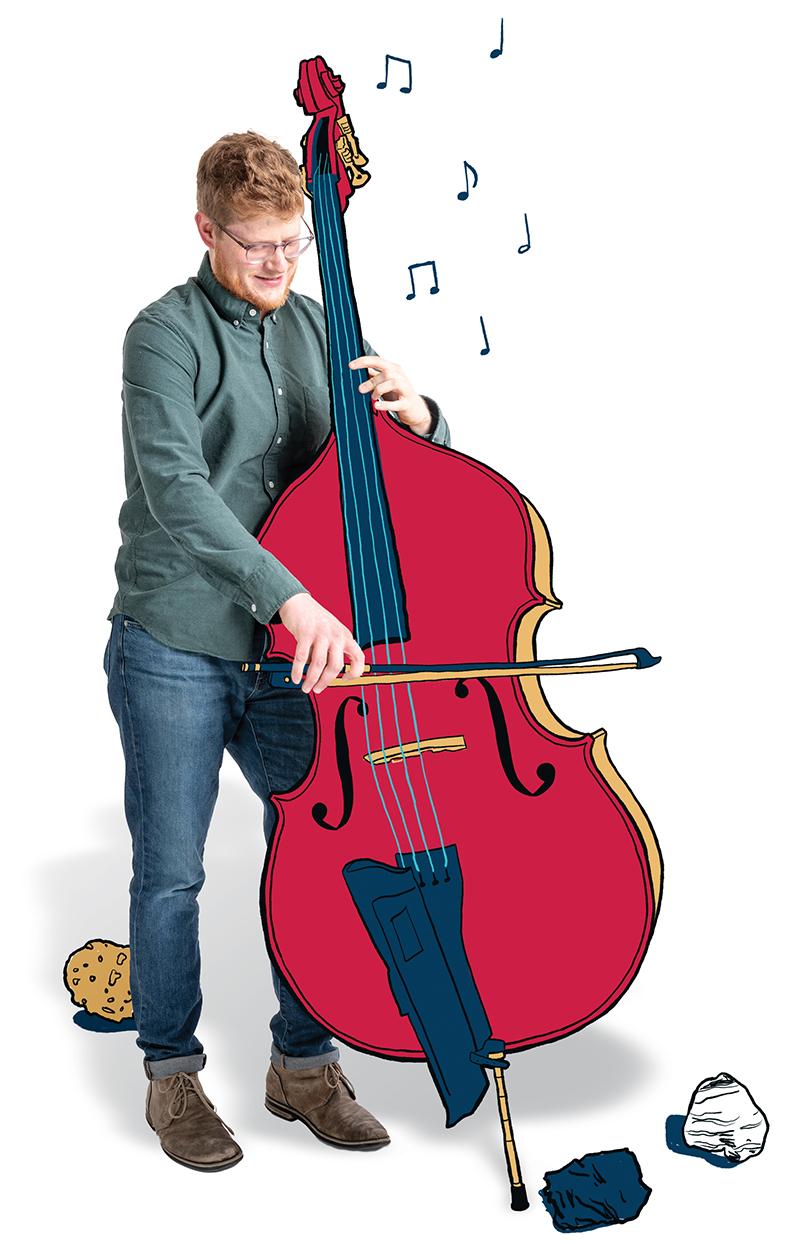
Recording an album is “something that you only would be able to complete when you have a bit too much time on your hands.”
But even he admits that “the work–life balance is just a bit trickier.” Jones says he wakes up a bit later now and slowly eases into his day. “When you don’t have somewhere to go, it’s hard to really get yourself moving.”
That’s when a few outside interests can come in handy. “I was very fortunate to be accepted into the music department as a PhD minor in jazz studies,” he says. “Now I have bass lessons every week, and I’m in a jazz ensemble online.” He’s also a member of the tadada Scientific Lab, which uses the arts to help people cultivate an emotional connection to science. And, Jones was finally able to finish his first solo album.
“I had just been procrastinating for months. It’s something that you only would be able to complete when you have a bit too much time on your hands,” he says. “It just sort of clicked.”
The release is now out as You and Me on Sad Cactus Records. Out of necessity, Jones had to record digitally and exchange files with musical friends across the country, and he was pleasantly surprised at the results. “It opened up a world of collaboration that I wouldn’t have tapped into if not for the pandemic.”
He’s also happy that he had the opportunity to TA during the pandemic, relishing the challenge of making the class more engaging. “We had to lean into in-class activities and active learning to spare students the misery of being talked at on Zoom for an hour plus,” he says. “It reminds me of why vegetarian cooking is often good — you can put a slab of meat on a plate and call it dinner, but to make vegetarian food taste good, you’ve got to work a little harder.”
— NIKI DENISON
READY? OAR NOT
This was not the senior year Tori Kost ’21 expected.
“I was totally envisioning going to football games,” she says. “I was thinking we’re going to go to the farmers’ market every week. We’re going to just do roommate things and teammate things and have a kick-ass season this fall, but I guess it didn’t happen.”
Kost spent the last half of spring semester 2020 and all of fall semester at her parents’ home in Hartland, Wisconsin, taking classes remotely. But classes are only a small part of her UW experience: she’s also a member of the women’s lightweight rowing team, which saw first its summer and then its fall season sink beneath the pandemic’s first and second waves.
Coaches had the rowers continue to practice, but not in person — rather, they took rowing machines (or “ergs”) home and rowed alone. “They actually hand-delivered all the rowing machines,” Kost says. “They just stopped at street corners and had us meet them there and take our rowing machines home with us to just erg by ourselves.”
Kost worked out on the machine — her baby, she called it — and ran to stay in shape. She kept in touch with members of her crew, who are all in her “pod,” the collection of students with whom she was cleared to have in-person contact. When football returned in September, she hoped that rowing would follow soon behind, but it didn’t. It wasn’t until the beginning of spring semester in January 2021 that the team reunited and began working out. “We are excited to see each other and be back training as a team,” she says. “We hadn’t seen each other for almost a whole year.”
Still, actual competition remains more a hope than a promise, and the crew might be limited to racing other schools in only a virtual regatta. Her wished-for in-person commencement ceremony ended up being for graduates only — no families allowed. But the accelerating delivery of vaccines may soon lead to more normal experiences.
“One can only hope,” she says.
— JOHN ALLEN
THERAPY THROUGH PLANTS
During the pandemic, graduate student Harry Main-Luu PhDx’25 was “spiraling down” and preparing to take a leave of absence from UW–Madison. But then he rediscovered joy in plants.
“It’s something that gets you up in the morning,” he says. “You don’t just mope in bed all day, because your plants need water or they’ll die. It gives you something to care for, a purpose, and it helped me battle my mental-health issues.”
It’s a purpose Main-Luu is passing along — free of charge — to fellow students and community members. When he’s not working toward his doctorate in math and logic, he’s tending to his greenhouse (which is also his living room) and donating starter kits to fledgling plant enthusiasts. Over the fall semester, Main-Luu propagated and gave away some 300 houseplants — mostly beginner-friendly varieties, such as aloe vera, jade, and pothos.
Main-Luu calls the enterprise Plant Zaddy Therapy and has plans to incorporate it as a nonprofit organization. He refuses reimbursement because he wants to remove all barriers to plant ownership.
Main-Luu, who grew up in Vietnam, finds compatibility in his studies and his new hobby. He meticulously tracks the progress of his plants and coordinates the donations through spreadsheets.
In the fall, Main-Luu served as a lead teaching assistant and dedicated more time than usual to planning instruction. He held his course sections in person when possible and shifted his plans online when the pandemic dictated.
However, the volatility and intensity of the semester left him feeling burned out. “I had my own classes and my own struggles with remote learning,” he says. “And because of that, I sympathized a lot with my students, as if I wanted to put in 300 percent effort to give them what I would normally be able to deliver.”
Plants helped him cope with those challenges and taught him an important lesson: “I’ve learned that there are more important things in life than math.”
— PRESTON SCHMITT ’14
RESILIENCY RULES
As someone who manages chronic pain, Misty M. Jackson x’22 — a 41-year-old retired combat veteran who has worked in preventive medicine for the U.S. Army — thinks of herself as a resilient person. She is pursuing a bachelor’s degree in neurobiology with plans to go to medical school and become a doctor in pain management.
“My pain-management doctor was the one that helped me,” she says. “I understand how it is to be in constant pain, so I wanted, in turn, to [help others], because that doctor helped me so much.”
While in the military, Jackson also served as a master resiliency trainer teaching mental skills and took on other roles that required her to change duty stations every two to four years. Jackson — who considers herself an extroverted introvert — drew on those experiences as she transferred to the UW and continued her studies amid the pandemic.
“Going from having social support to being at home alone has been a bit challenging at times, but I think being resilient is the biggest part,” she says. “That’s something that my military training has definitely helped [me with].”
Jackson has also received support from her family and guidance from her traditional cultural beliefs as a member of the Bad River and Lac du Flambeau Ojibwe tribes in northern Wisconsin. She stays active by engaging with her tribal communities, working as a downhill ski instructor and as a student office worker for Earth Partnership, and participating in groups such as the American Indian Science and Engineering Society as well as the UW School of Medicine and Public Health’s Native American Center for Health Professions. And she doesn’t lose sight of the good that life has to offer — she’s looking forward to welcoming her first baby this fall.
Having worked through the Ebola and H1N1 pandemics in the army, Jackson speaks up to dispel COVID-related myths and build trust in science. “I do feel sometimes it’s my duty to lead the conversation,” she says.
Once the pandemic is over, she says, “I think it’ll be something that we collectively went through — as a whole, we have experienced a lot of loss. The most important thing I’ve heard and repeat is, ‘We are still here, we stand together, and we will take care of each other.’ ”
— STEPHANIE HAWS ’15
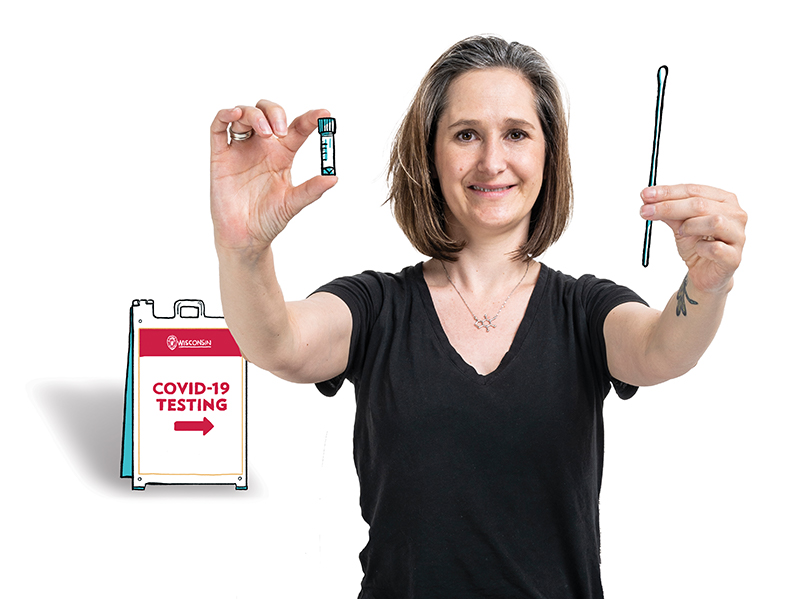
“I was quite surprised the first time that I had to come up with a milliliter of saliva at how much that really was.”
DROOL SCHOOL
“We used to [give] the nasal swab, which everybody hated,” says Ryan Bruschke ’21, “until they had to drool, and now they all miss it.”
Bruschke is well versed in swabs, saliva, and the many aspects of COVID-19 testing. A senior in the School of Nursing, she has worked as a UW COVID-19 test collector throughout the 2020–21 academic year, and her experience has grown with the number of tests and volume of drool.
“I saw the job posting for a COVID tester at [University] Health Services,” she says. “And I couldn’t resist applying. I want to go into primary care, and I really loved the idea of being able to work with the student population.”
Since August 2020, Bruschke has been assisting at testing locations around the UW campus, doing four- or eight-hour shifts at Henry Mall, the Nielsen Tennis Stadium, the Kohl Center, and the UHS facility at 21 N. Park. For each shift, she puts on a surgical mask and face shield, as well as gloves and an isolation gown. It’s a lot, but so far, no one — neither health care worker nor member of the public — has been infected because of going to a testing center.
When people come to one of the sites, Bruschke and her colleagues try to make sure that the sample they provide is pure: in the previous hour, people cannot have had anything to eat or drink, nor smoked, nor brushed their teeth. If they’ve obeyed those restrictions, they receive a sample vial to drool into: one full milliliter.
“It’s a lot more than you think it’s going to be. I’ll be honest, I was quite surprised the first time that I had to come up with a milliliter of saliva at how much that really was, especially if you were thirsty.”
By spring semester, the UW’s COVID-19 testing regime was processing 12,000 tests a day. They aren’t all saliva tests, of course. Some are still swabs. But the volume is evocative: three gallons of drool every day.
“I apologize,” says Bruschke. “I know that’s gross.”
— JOHN ALLEN
MAKING THE MOST OF IT
Discovering that he’d been elected as senior class president for the 2020–21 academic year wasn’t the only big announcement Alec Bukowiec ’21 received one week in March 2020.
Bukowiec, in the middle of a semester-long, study-away program in Washington, DC, was also notified that the UW would be sending him home.
“That was a very crazy week,” Bukowiec recalls. “I rented an Enterprise car and drove from DC to Wisco.”
The marketing major traveled home to Chase, Wisconsin, before returning to Madison in April 2020. His plans to complete the semester in DC, visit friends in Europe, and live in Chicago for a summer internship were foiled, although he was still able to complete his internship virtually.
For his senior year, Bukowiec had a vision of what he wanted to accomplish as class president, such as holding office hours and planning in-person events for fellow seniors. But the pandemic forced class officers to adapt those plans — and to take a hard look at commencement ceremonies.
“I certainly feel an immense weight of pressure on my shoulders, especially as we come up to spring commencement,” Bukowiec said in February. Classmates frequently asked him about plans for the ceremony when seeing him in passing on campus. “[Class officers have] certainly been met with a lot of difficulties, as has every organization on campus, but we have tried to take what’s in front of us and make the most of it.”
Bukowiec thinks he’ll always feel ambivalent about his unconventional senior year and presidency. “Sad because there will always be a lot of unknowns that I will not be able to reconcile,” he says. “Also, grateful [because] the lessons I’ve learned about time being precious still apply — even right now.”
— STEPHANIE HAWS ’15
EXTRA EXTROVERTING
Being involved in extracurriculars and seeking out new opportunities helped Robyn George x’24 keep her spirits up during a trying time. George was one of the first-ever freshmen elected to leadership for Associated Students of Madison (ASM, UW–Madison’s student government), and she participated in UW Housing activities such as virtual game nights. A remote internship with the state legislature, although devoid of networking opportunities and hands-on experience, still taught her a lot of problem-solving skills.
The political science major has made a point of meeting new people “in whatever way possible. I consider myself a very outgoing person, so I haven’t had too much trouble making new friends,” George says. Her biggest challenge has been moving from a structured environment at Menomonee Falls High School to mostly online classes that are often asynchronous. In other words, “you kind of work at your own pace, or there aren’t scheduled meeting times, so you have to be on top of your academic behavior,” she says. One of the ways that she holds herself accountable “is by making sure that I get up and get dressed and go somewhere, if possible, to study outside of my dorm, so I don’t get so distracted by my environment.”
Technology has also presented challenges. “I definitely had some problems, but I was able to navigate them pretty well,” she says. “Luckily, I’m technology savvy, but not everyone has that background. I know for a lot of my friends and classmates, they’ve had a really hard time trying to navigate [courses] online.”
On the plus side, “not having to run from class to class and navigate campus — having the ease of being able to go from Zoom meeting to Zoom meeting instead — has been really convenient physically.”
Overall, George feels that the pandemic has forced her to become even more outgoing and organized, which has actually improved her grades and changed how she looks at success. “In high school, it was about how much did you accomplish. But it has to be different in a pandemic. It’s all about doing your best with what you have to work with. That’s really all you can do, and the rest is out of your hands.”
— NIKI DENISON
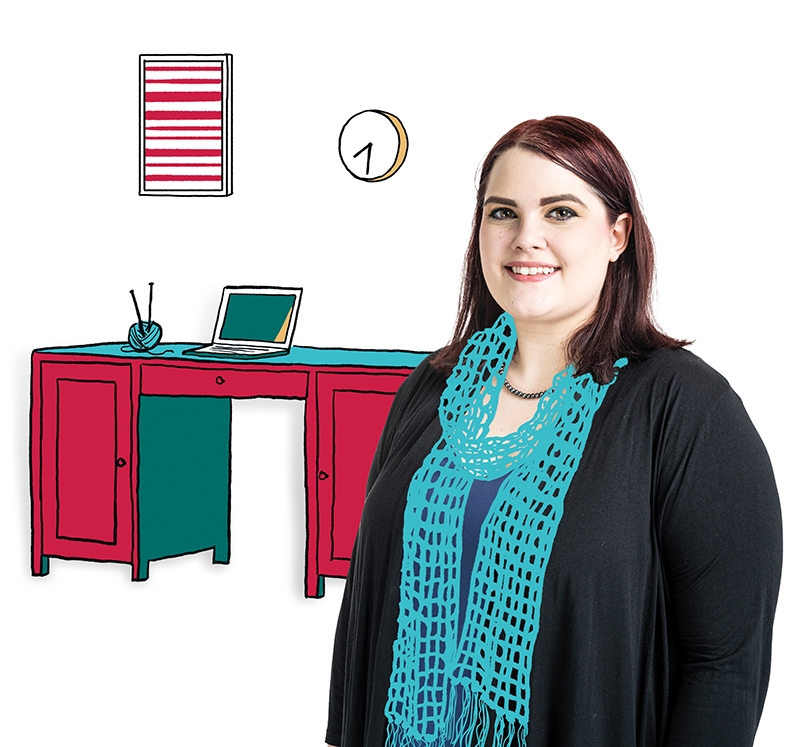
“I haven’t been in perfectly high spirits throughout this whole time, but sticking to a schedule has helped me hang in there.”
A SEMBLANCE OF NORMALCY
Before the pandemic hit, Tina Marshalek ’21’s life at UW–Madison couldn’t have been fuller. After arriving as a transfer student in 2019, Marshalek immersed herself in campus activities, from Badger Volunteers to the Mentor Collective. Last spring, she made headlines for winning a prestigious Truman Scholarship, which honors student leaders committed to public service.
But that was then. Circumstances forced Marshalek to scale back: no more crocheting with UW’s Knit for a Cause; no more hanging out with her friends at the Transfer Transition Program.
“I’ve lost touch with some of the things I would have done in person,” says Marshalek, who graduated in May with a degree in community and nonprofit leadership. “I wish I had the time and energy to accomplish more, but I’m being realistic about what I can handle.”
To maintain a semblance of normalcy, Marshalek tried to be even more organized than usual. She made sure to get regular exercise and to sit down at her desk at 8:30 a.m. every weekday.
“I haven’t been in perfectly high spirits throughout this whole time,” she says, “but sticking to a schedule has helped me hang in there.”
Marshalek does see one upside to the pandemic experience: it’s made her more patient. In the old days, for example, she would never have forgiven someone who blew off an in-person meeting.
“But now, if somebody doesn’t show up for a Zoom meeting, my first thought isn’t that they’re irresponsible,” she says. “My first thought is: they must be dealing with something.” •
— DEAN ROBBINS
The UW’s All Ways Forward comprehensive campaign supports rowing and other Badger sports programs, as well as including a UW Health COVID-19 Response Fund.
Published in the Summer 2021 issue

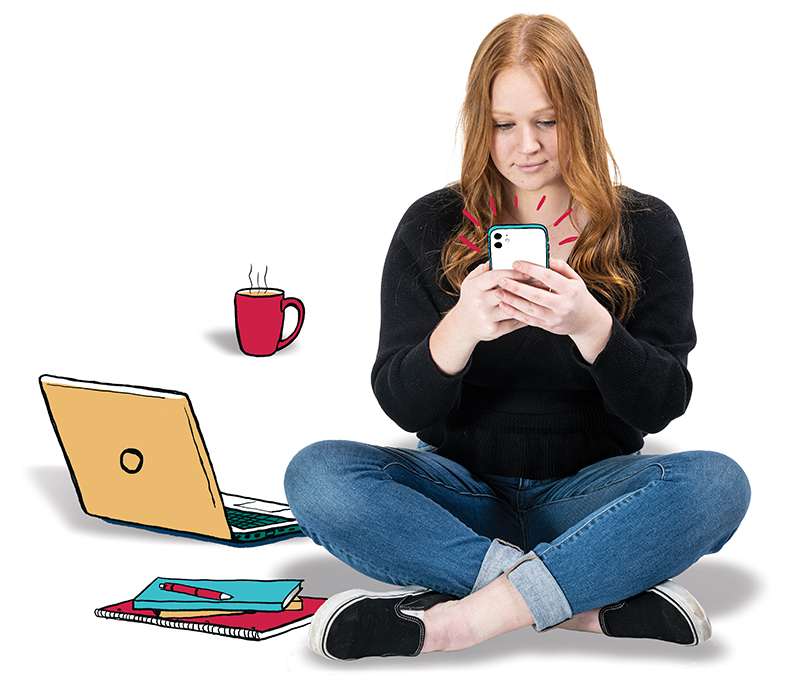
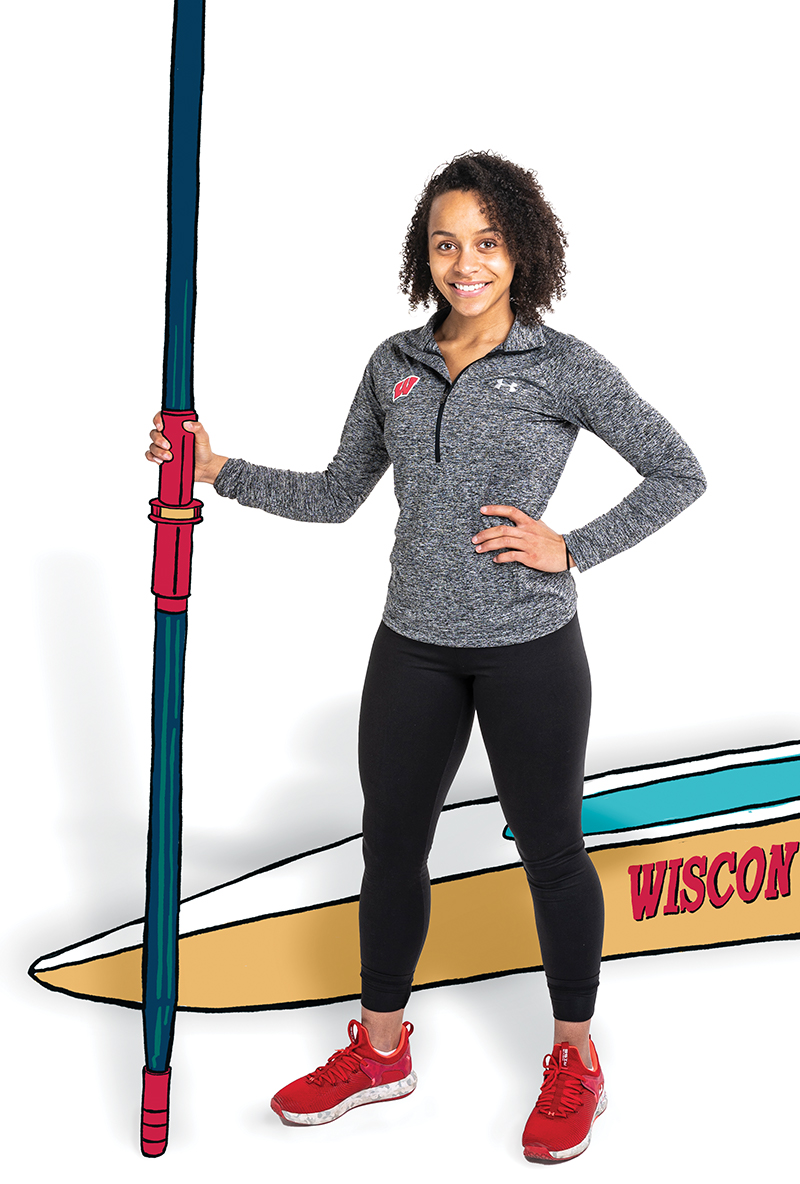
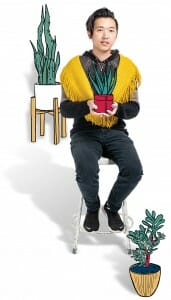
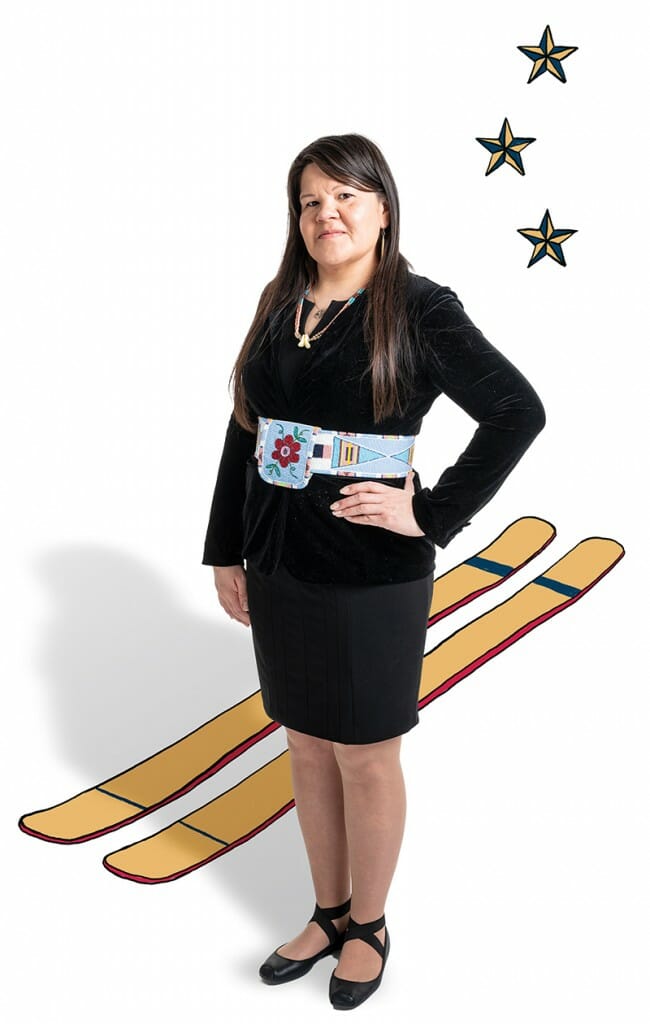
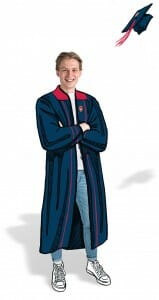
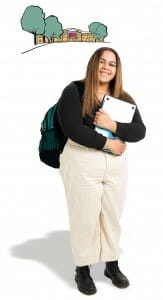
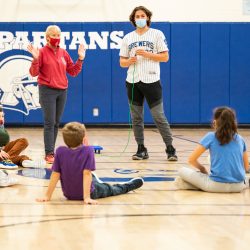
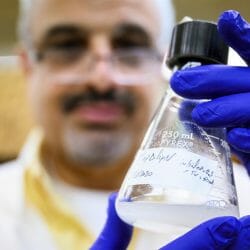
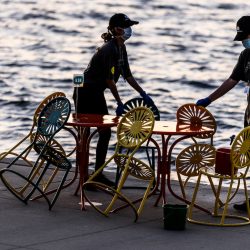
Comments
No comments posted yet.